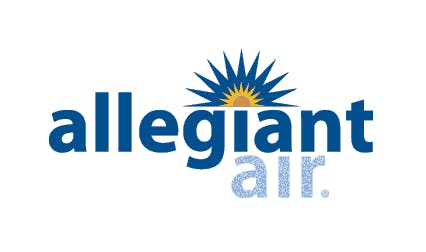A day after absorbing an 11% loss, Allegiant Travel Company (NASDAQ:ALGT) shareholders should spend a minute reviewing the results that caused the selloff. Were the second quarter numbers really bad enough to justify the stock plunge?
The company focuses on low-cost travel to leisure destinations and has seen a dramatic stock increase since the middle of 2011.

Reviewing Q2 results
The media and traders tend to focus more on the headline numbers such as revenue and the listed earnings and that can greatly impact the stock results over the first day or two. Long-term, real investors dig into the numbers such as cash flows or EBITDA to understand what drove those headline numbers.
In the case of the Q2 2013 results for Allegiant Travel Company (NASDAQ:ALGT), the company reported earnings of $1.34 that missed the $1.36 estimates. Note that these numbers are only slightly above the $1.30 numbers from Q2 2012. Right away investors need to understand the reasoning for the slowdown in earnings growth. More importantly, anybody reviewing the initial table provided by the company in the press release should aspire to understand the reasons for revenue and EBITDA growing at a comparable nearly 11% clip, while operating income and net income only sputtered towards slightly above 2% growth.
Reading the press release, it is clear that the company has accelerated some depreciation charges related to old MD-80 planes and is incurring extra charges and reduced efficiency from bringing on a fleet of modern Airbus planes in the form of A319s and A320s. By the end of the year, the company will have 10 such planes after starting the year with none.
With additional research, the reason that EBITDA surged is due to the substantially higher depreciation charges. Investors will have to come to grips with whether accelerated depreciation is worthy of losing faith in a stock. Surely investors didn’t expect the company to remain focused on an aging MD-80 fleet.
Others impacted?
With the revenue and EBITDA intact, it’s difficult to see these numbers impacting other airlines. Republic Airways Holdings Inc. (NASDAQ:RJET) declined 2.7% and SkyWest, Inc. (NASDAQ:SKYW) had a minimal drop on the first day of trading. Neither airline has the high earnings multiple or revenue growth expectations of Allegiant Travel Company (NASDAQ:ALGT) to expect any significant impact from an earnings miss by that company. In general, the whole airline industry trades at sub-market earnings multiples, providing plenty of cushion for a miss.
Republic Airways Holdings Inc. (NASDAQ:RJET) only trades at 7 times forward earnings though part of the low multiple is dependent on earnings soaring from $1.11 in 2012 to $1.77 in 2014. SkyWest, Inc. (NASDAQ:SKYW) trades at the higher 10 times forward multiple though analysts expect a similar earnings surge from $0.99 in 2012 to $1.47 in 2014.


